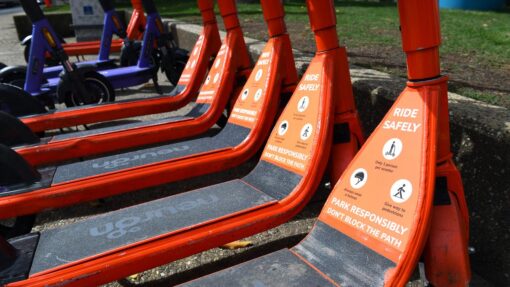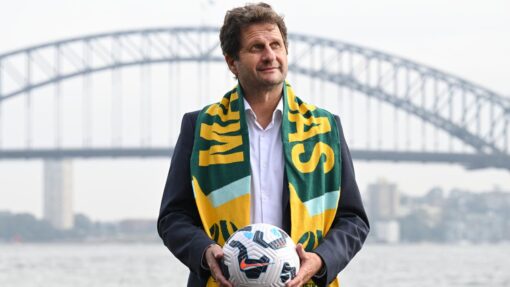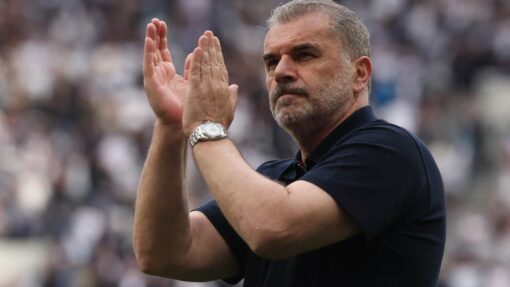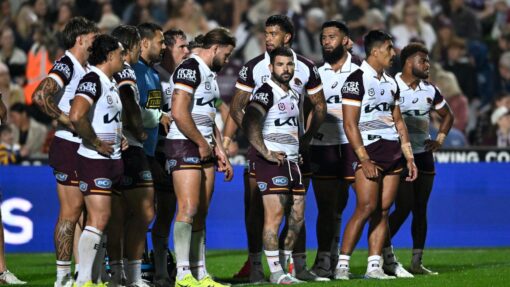PNG trailblazer wants Pacific Cup to launch AFL careers
Steve Larkin |

Papua New Guinea’s AFL trailblazer, Hewago Paul Oea, says it’s special – and a tad crazy.
The AFL’s international development manager Ben Drew says it’s exceptional – both Oea and the talent on display.
Oea and Drew are watching the AFL’s Pacific Cup being contested at Maroochydore on Queensland’s Sunshine Coast.
“Some of the football being played is exceptional,” Drew told AAP.
“And it wouldn’t have been anything like this 10 years ago.”
About a decade ago, Drew was in PNG in his role as the AFL’s South Pacific manager and first met Oea.
“My older brother played rugby league and AFL,” Oea told AAP.
“Growing up I was watching league as the number one sport back in PNG but it was good to see my brother play both sports.
“And I started following him and just playing footy. I just jumped on board and started playing AFL in the junior program.
“Watching AFL back home, I was: One day, I hopefully will make it, if I want to work hard now and push myself, one day I will fulfil my dream’.
“And my dream come true and I got picked up by the Gold Coast Suns.”
Oea, universally known as Ace, made his AFL debut for the Suns in 2022 – he was delisted at the end of last season by Gold Coast but remains in training with the club in hope of earning another contract as a supplemental selection.
He’s reckoned to be the first to play at the elite level after discovering and learning the game overseas, rather than be established in other sports when targeted by AFL recruiters, such as multiple Irishmen and American Mason Cox, or born overseas then adopted the code in Australia.
Oea is now not just the role model for about 500 players at the current Pacific Cup, featuring PNG, Fiji, Nauru, New Zealand, Tonga and South Africa in men’s and women’s open, and U17 male and female competitions.
He is also the model for the AFL’s entire Pacific pathway.
“The pathway that we have in place for these young boys and girls is largely modelled on the journey that we took him on,” Drew said.
“From a 12-year-old, through to joining the Suns academy at 16, 17, fulltime; and then getting on the NEAFL list; then getting a rookie spot and then being elevated to the (Gold Coast) senior list.”

Oea, born in Gordon in PNG as the youngest of seven children, fell in love with Australian Rules via the Niukick program in Port Moresby – the locally-branded Auskick program.
Drew met him around that time.
“I have known Ace since he was 11 when he was in our programs in Port Moresby,” Drew said.
“I have known his family for a long time. I remember putting him on his first plane and flying down with him after sitting with his Dad and getting the family’s blessing to come and move a 15-year-old kid to Australia to have a chance for three months.
“Ace wasn’t at school. We had to put some tutoring around him to help him read and write and understand, his English has come along so far and his journey is only just beginning.
“He’s an an amazing role model.
“Ace is so generous with his time, he doesn’t flinch – whenever our kids are in town he rings me before I get to ring him to say: ‘Where are they, I am coming’.
“He is just such a great role model and a great person and we’re really blessed that he came through the pathway.
“He gives up a lot of his time to give back to the kids from all the (Pacific) countries not just PNG; he’s always in our Pacific camps, he goes and sees all the players from all the countries.”
Oea readily accepts his role model status.
“Personally I am excited to see the Under 17 boys and girls from PNG and other Pacific nations at the tournament – they have never travelled overseas before and it’s their first time coming to Australia and it’s crazy,” he said.
“I am so proud of them for the opportunity to come here.
“And I know the talent in PNG and other Pacific nations – they can one day follow in my footsteps.
“It’s pretty special for them to come and play here and get experience here of what it’s all about and to take it back and learn.
“And hopefully they can come back and one day follow my pathway and fulfil their dream.”
The Pacific Cup, which concludes on Sunday, is a newly formed event stemming from the AFL’s International Cup which was held every three years.
The most recent International Cup was in 2017 as the COVID pandemic cancelled the 2020 tournament.
“Once we were able to get back from COVID, it was ‘is that the best model, how do we support that, do our countries and our affiliates have the ability to all get to Australia at the same time’,” Drew said.
“So we came to the conclusion that in the short-term, why don’t we just split up the world a little bit and hold three regional events.”
The Transatlantic Cup was staged in Canada last August, with the Pacific Cup to be followed by the Asia Cup in Vietnam next month.
“It was extremely important to have something for our affiliates to aspire to at a senior level,” Drew said.
“Aspiration is important. If there’s nothing to aspire to, then generating development and community programs in country becomes a challenge.
“For us, the results and who wins and loses is irrelevant in a way – but for the countries, everyone wants to win the tournament.
“It’s a starting point for our international program.
“Once those three competitions are run we will review and come to a conclusion of what we feel is the best model moving forward to continue the growth of international football at a senior level which will impact and help community programs in each country.”
AAP


